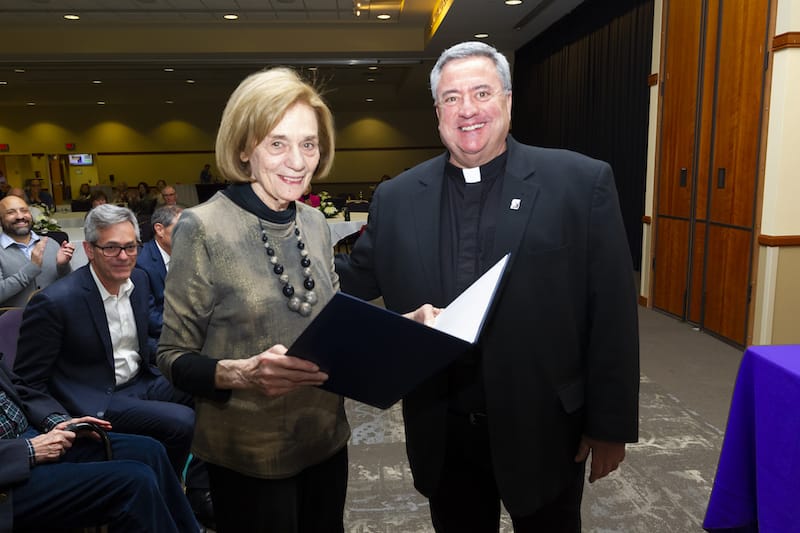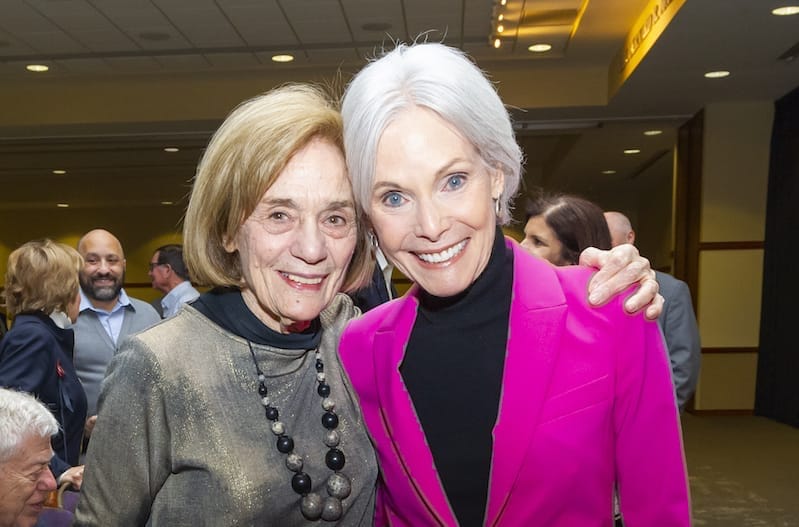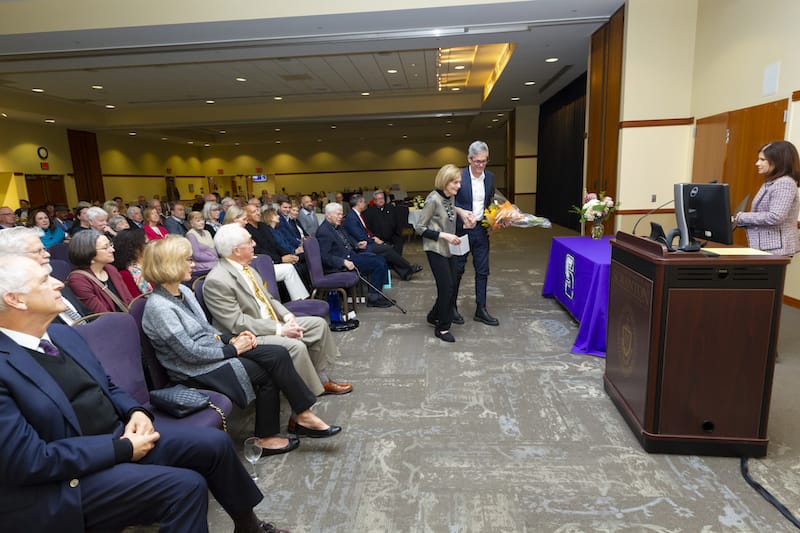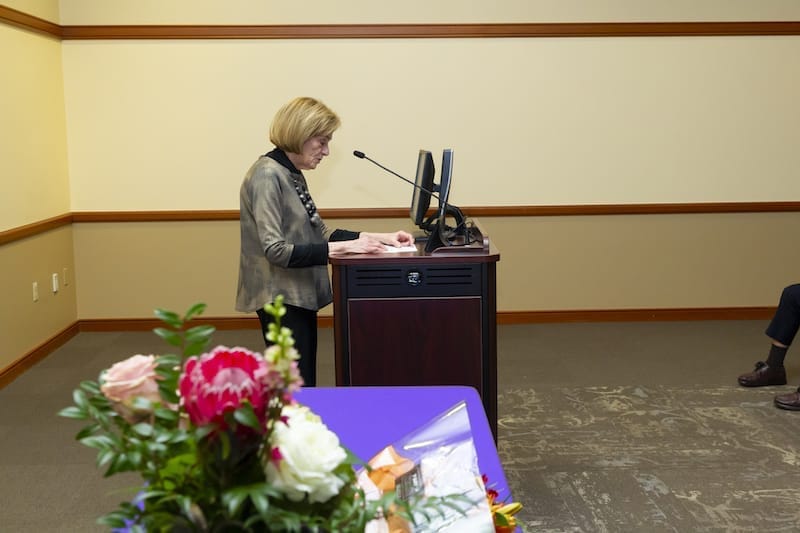Founding Schemel Forum Director Sondra Myers
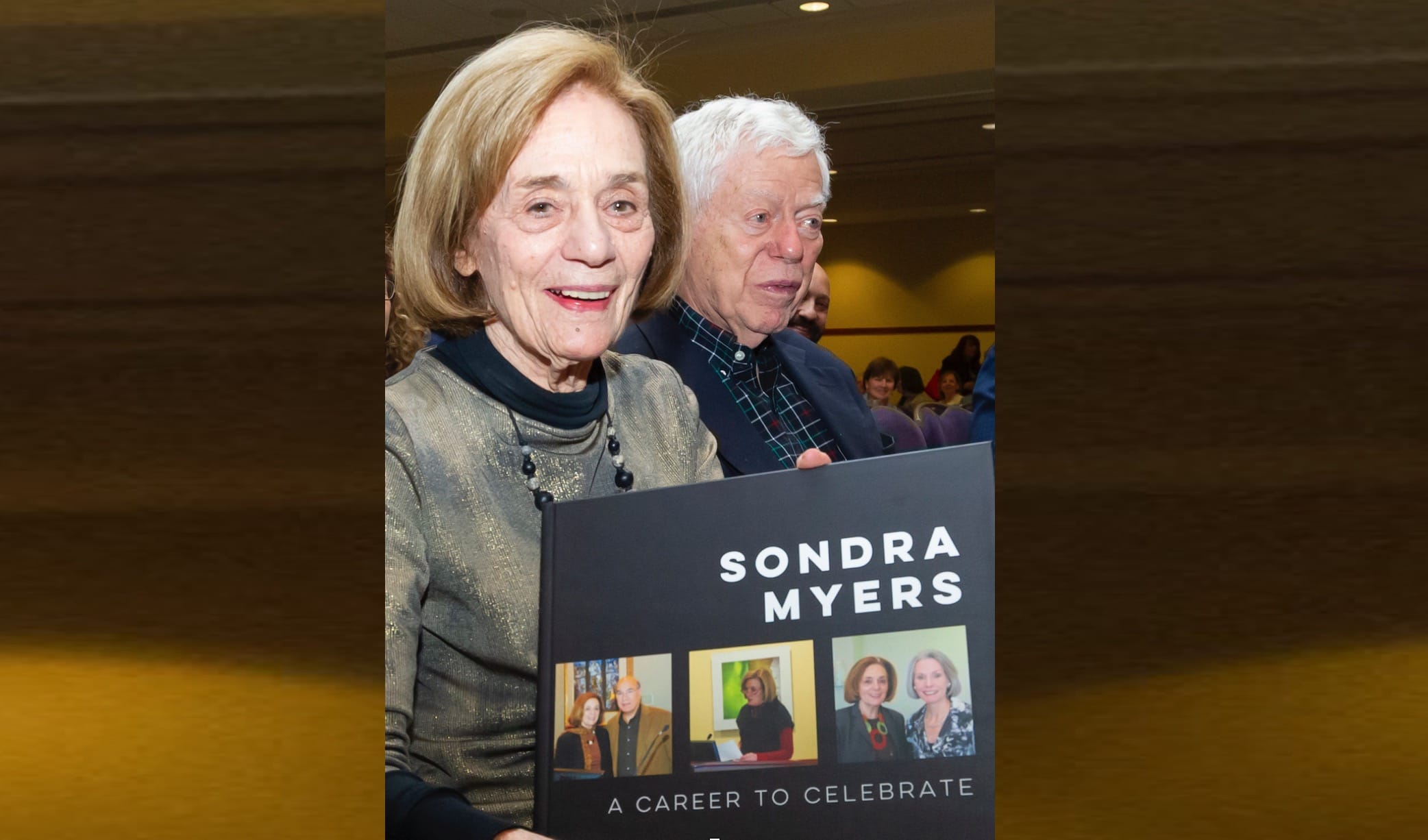
For nearly two decades, Sondra Myers has done her best to “bring the world to Scranton,” and “that she did with magnificent grace,” said Rev. Joseph Marina, S.J., president of The University of Scranton, in a message to the University community celebrating her contributions.
Following this spring’s slate of programs, Myers stepped down from her post as the founding director of The University of Scranton’s highly popular Schemel Forum, which for the past 17 years has brought a who’s who of notable thinkers to the city for engaging discussions geared around everything from geopolitics to history to literature.
Since its creation, the aim of the education and cultural enrichment program has always been the same – to provide people of all ages with the chance to be exposed to the intellectual and cultural wonders of the world.
“I’m not calling it a retirement, because I don’t look at it that way,” said Myers, the University’s senior fellow for international, civic and cultural projects. “I still want to keep busy and try new things. But I thought it was a good time to exit. I have to say, it’s been a very rewarding experience, and I’m very proud of what we’ve been able to accomplish. I can’t believe how much it’s grown over the years.”
The origins for the Schemel Forum go back to the 1980s and ’90s, when Myers served as the cultural adviser to Pennsylvania Governor Robert P. Casey and then the special assistant to the chairman of the National Endowment for the Humanities. An author and frequent lecturer on the arts, humanities and civil society who focuses primarily on the integration of culture into public policy in the United States and the strengthening of the culture of democracy worldwide, Myers wanted to bring similarly themed programming to the area.
For additional inspiration, she looked to local oncologist Harmar Brereton, M.D., who along with some friends had started meeting informally to discuss literature, art, and history.
With that framework in place, Myers approached then-University President the Rev. Scott Pilarz, S.J., and then-Provost Harold Baillie, Ph.D. Both loved the idea, and the Schemel Forum was born in July 2006 with funding from the Rev. George Schemel, S.J., Fund, which was created by friends of the beloved campus Jesuit.
The first Schemel events were held that fall, and quickly caught on with members of the University community and the general public.
“We started to get real audiences, and then I knew we were onto something,” Myers said. “The people have been so wonderful and appreciative – I love seeing that they still have that hunger for learning. Many of them come back year after year. It’s adding value to their lives, and that makes me happy.”
Every fall and spring semester, the Schemel Forum hosts a schedule of uniquely themed Courses, World Affairs Luncheon Seminars, and Collaborative Programs, which the University partners on with other local organizations.
The Courses consist of a series of evening classes typically taught by University faculty members and geared around a central theme that aligns with their scholarly focus, be it detective fiction, Eastern philosophy, or modern American conservatism.
“The faculty members love teaching the courses, and they love the fact that the people who attend actually ask questions, unlike some of their students,” Myers said with a laugh.
For the World Affairs lectures, Myers brings in an eclectic roster of speakers, from journalists to historians to novelists. Often, she relies on her extensive network of contacts, or simply reaches out to people whose work she particularly admires. Many guests have agreed to come for well below their typical asking price, she noted.
The list of highly accomplished World Affairs speakers includes Pulitzer Prize-winning and Tony Award-nominated playwright, novelist and screenwriter Ayad Akhtar, longtime CNN journalist and Dunmore native Jill Dougherty (pictured with Myers above), and Dr. Carol Rittner, a Catholic nun and Holocaust historian who Myers collaborated with on the Academy Award-nominated short documentary, “The Courage to Care.”
As she prepared to relinquish her duties, Myers said she’ll take with her countless great memories, and tremendous pride in having built from the ground up a home where thought-provoking ideas could be shared freely.
“Knowing Sondra, she will never truly retire, but will continue her great work on other projects of interest, which I am sure will continue to benefit the region and beyond,” said Father Marina.
“I really did want to bring the world to Scranton, and I think we’ve done that,” Myers said. “It’s become a real wonderful part of the University and I hope it remains that way after I leave.”
The University hosted a tribute to Sondra Myers in April on campus.


